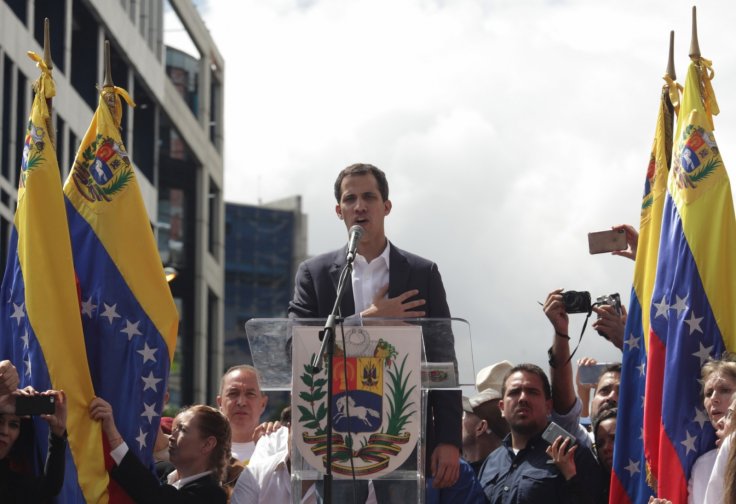
Self-proclaimed interim president Juan Guaido, here on Saturday, announced an upcoming gathering of world leaders in Venezuela to address what the opposition calls a humanitarian emergency in the oil-rich nation.
"We will have a great global encounter here in Venezuela of leaders to talk about the situation in Venezuela, about the humanitarian emergency, about the solution and the alternatives for change in Venezuela," he told thousands of supporters in Caracas.
The speaker of the opposition-controlled National Assembly provided no details about the date of the encounter and did not name the participants, but his press team said that more information would be provided in the coming days, Efe reported.
The rally Guaido addressed in the capital was one of more than 350 planned demonstrations across Venezuela to denounce the leftist government of President Nicolas Maduro for a series of nationwide power blackouts, including one that lasted five days.
Guaido, recognised as interim president by the US and more than 50 other countries, urged public employees to come to the National Assembly on Monday to activate the next phase in "Operation Freedom," the name he gives to the effort to oust Maduro, whose May 2018 re-election the opposition and its foreign allies deem illegitimate.
"Everyone into the streets for the definitive phase of the end of the usurpation," Guaido said.
The assembly speaker said that police used tear gas to break up an opposition protest in the western state of Zulia and briefly detained two lawmakers.
As Guaido spoke in eastern Caracas, thousands of government supporters marched to the presidential palace, on the other side of the capital, to listen to a speech by Maduro.
The president expanded on his government's previous claims that the power failures plaguing Venezuela in recent months were the result of sabotage orchestrated by Washington.
"We have discovered new sources of attack, from Chile, Colombia, cyber-attacks supported by the government of the US have been carried out to damage the electrical system of Venezuela," Maduro said.
A massive power failure on March 7 kept virtually the whole country in the dark for five days until the government managed to regain control of the situation and restore electric service.
The government said at the time that sabotage at the Guri hydroelectric complex, which supplies 70 percent of Venezuela's electricity, was to blame for the blackout.
The opposition, however, blamed the Maduro government for failures in the system, saying that the government's poor management of the grid was the real cause of the outage.
China, Russia and India are among the dozens of countries that continue to support Maduro.









